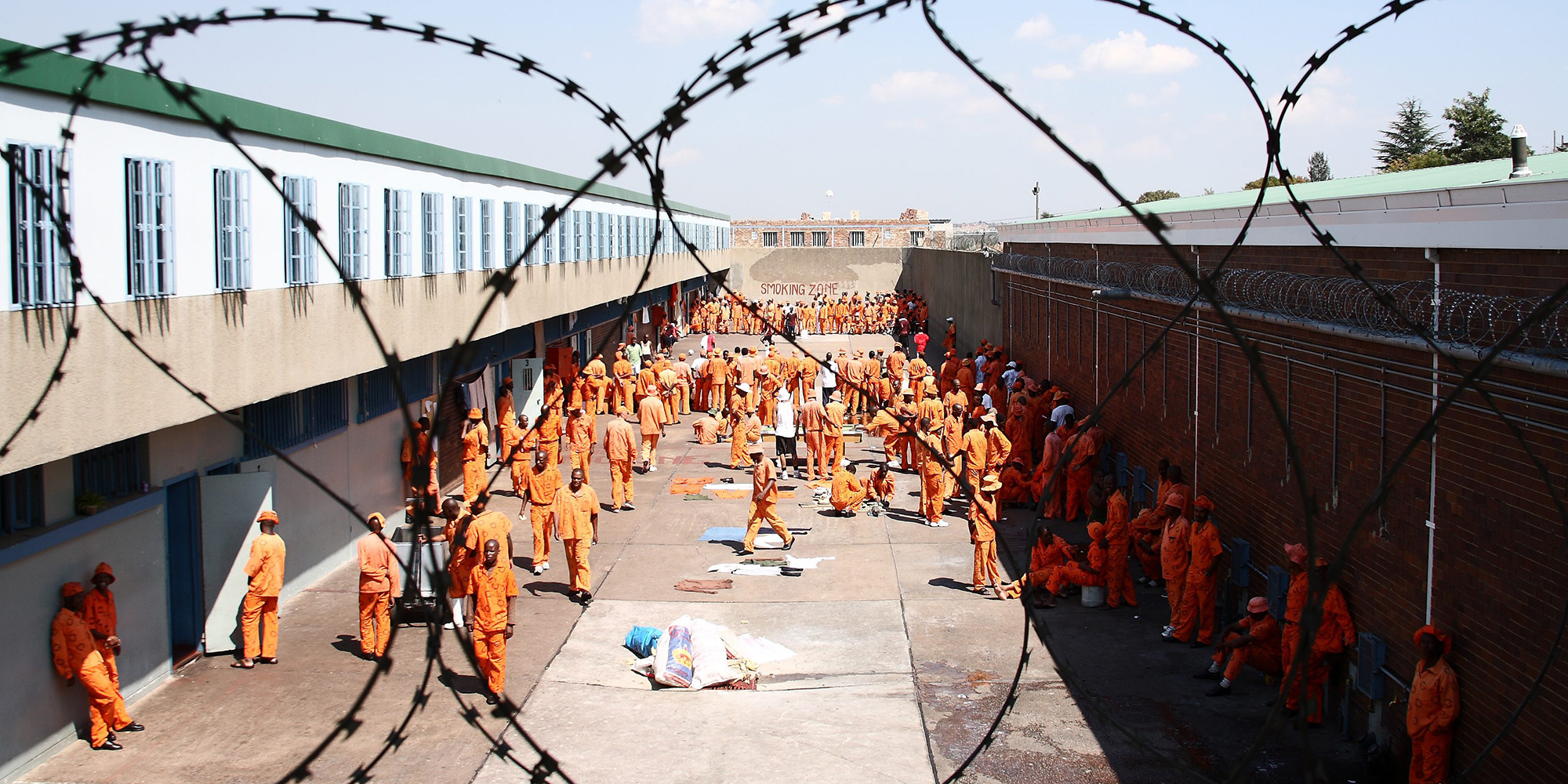In a landmark ruling, Judge Ellem Francis has found the state liable for damages under the Prevention and Combating of Torture of Persons Act 13 of 2013, known as the Torture Act.
This is the first such order in democratic South Africa.
The sadistic conduct of Department of Correctional Services (DCS) officials and the attempted official coverup, including by medical personnel, was reminiscent of apartheid state torture, the Johannesburg High Court judge highlighted in his ruling.
Handing down judgment on 31 August in the matter between the minister of justice and correctional services and five inmates at Leeuwkop Prison — Llewellyn Smith, Xolani Zulu, Benson Qibi, Abel Phasha and Mthokozisi Sithole — Francis severely censured state officials.
“It is rather sad and disturbing that some of the events that took place during the dark days of apartheid continue to take place in our beloved country at correctional facilities where some people in charge have learnt from the former masters about how to treat inmates who do not toe the line,” he said.
It was also “shocking that some officials would gang together to come up with a version in an attempt to mislead the courts about what really happened at their facility”.
The prohibition of torture was “absolute and given the asymmetries of knowledge and access to evidence, the victim is not required to adduce evidence to prove that the perpetrator acted with a particular intent to torture”.
It was for the State to adduce evidence and prove otherwise, Francis said.
“There are no exceptions or derogations permitted and no justification can arise.”
Ghosts of Biko, Aggett and Timol
Electric shocks, assaults with batons, being stripped naked, attacked by dogs, forced to do handstands and enduring long periods in solitary confinement, shackled and in squalid single cells were some of the sadistic methods used by DCS officials.
Francis found that the version given by the Leeuwkop officials, that they had been attacked by the inmates in Cell B1, was “a pack of lies”.
Read more in Daily Maverick: Leeuwkop prisoners tortured by guards, subjected to unlawful segregation, court rules
The prisoners protested in 2014 by locking the cell from the inside with a makeshift bolt after having been arbitrarily “demoted” to a lower grade and having privileges withdrawn by officials.
With his background as a former human rights attorney with the Legal Resources Centre, Francis’ searing judgment drew richly from this painful history.
“We come from a violent past where so many prominent and non-prominent activists were assaulted, tortured and killed during apartheid while they were under police custody,” Francis said.
This violence had touched ordinary members of society, he added.
“There would be cover-ups by the authorities to hide the atrocities and the cruelty that those victims had suffered while in police custody.”
District surgeons at the time “would lie about the severity of the injuries that the victims and deceased persons had suffered and would lie about the causes of death. Some examples that come up are the matter of Steve Biko, Neil Aggett, Ahmed Timol, Simon Mthimkhulu, etc.”
Mob justice
Judge Francis described the conduct of senior officials as “disturbing” and noted the assault was “a typical case of mob justice that still plagues our country, only that in this case the officials wanted and had applied mob justice against the plaintiffs”.
It was also “sad” that none of the officials who had witnessed the events had come to court to testify. Medical personnel, including a doctor and two nurses, had turned a blind eye, the court found.
The plaintiffs in the action were not activists, but “convicted criminals” and inmates at the correctional facility.
“The fact that they are convicted criminals does not prevent them [from being] treated like human beings and to deny them the protection afforded to them by our Constitution,” the judge said.
The fact that the perpetrators were high-ranking officials did not provide them with “the licence to do as they please”.
Dragging it out
Concerning the length of time it had taken for the matter to finally get to the courts, Francis said the original duration of three weeks of case management had turned into a 99-day trial which began on 29 October 2019 and ended on 19 August 2022.
The minister had denied culpability at the time.
The application by the inmates was for a damages award for various traumas, both mental and physical, they had suffered under the severe and prolonged assault before solitary confinement.
“This matter is a sober reminder that judges are independent and should not allow any practitioner or organisation, no matter who they are and what their previous backgrounds and positions … [to] attempt to intimidate judges when it comes to court matters.”
Fairness of court proceedings required judges to be actively involved in the management of proceedings, to control these and ensure that public and private resources were not wasted.
It was their duty to point out when evidence was irrelevant and refuse to listen to irrelevant evidence. He was referring here to the version presented by the DCS.
“Judges are not accountable to any party but the Constitution.”
The minister of justice and correctional services (the defendant) was found to be “100% liable for the plaintiffs’ damages arising from acts of assault and torture as contemplated in the Prevention and Combating of Torture of Persons Act 13 of 2013”.
The amount of these damages, which will also go towards future medical expenses for those tortured, is yet to be determined. DM





